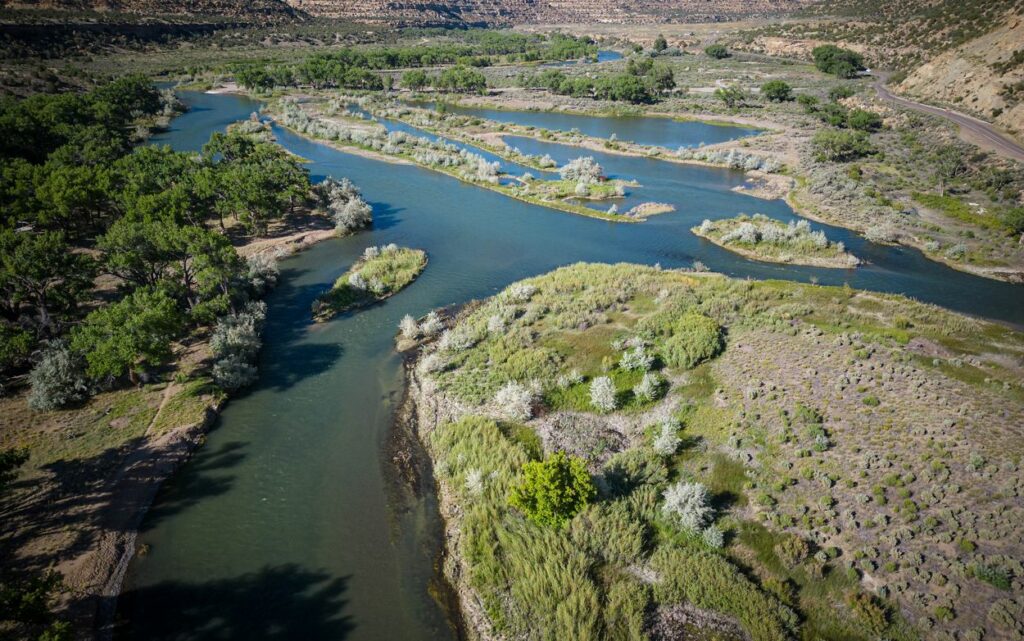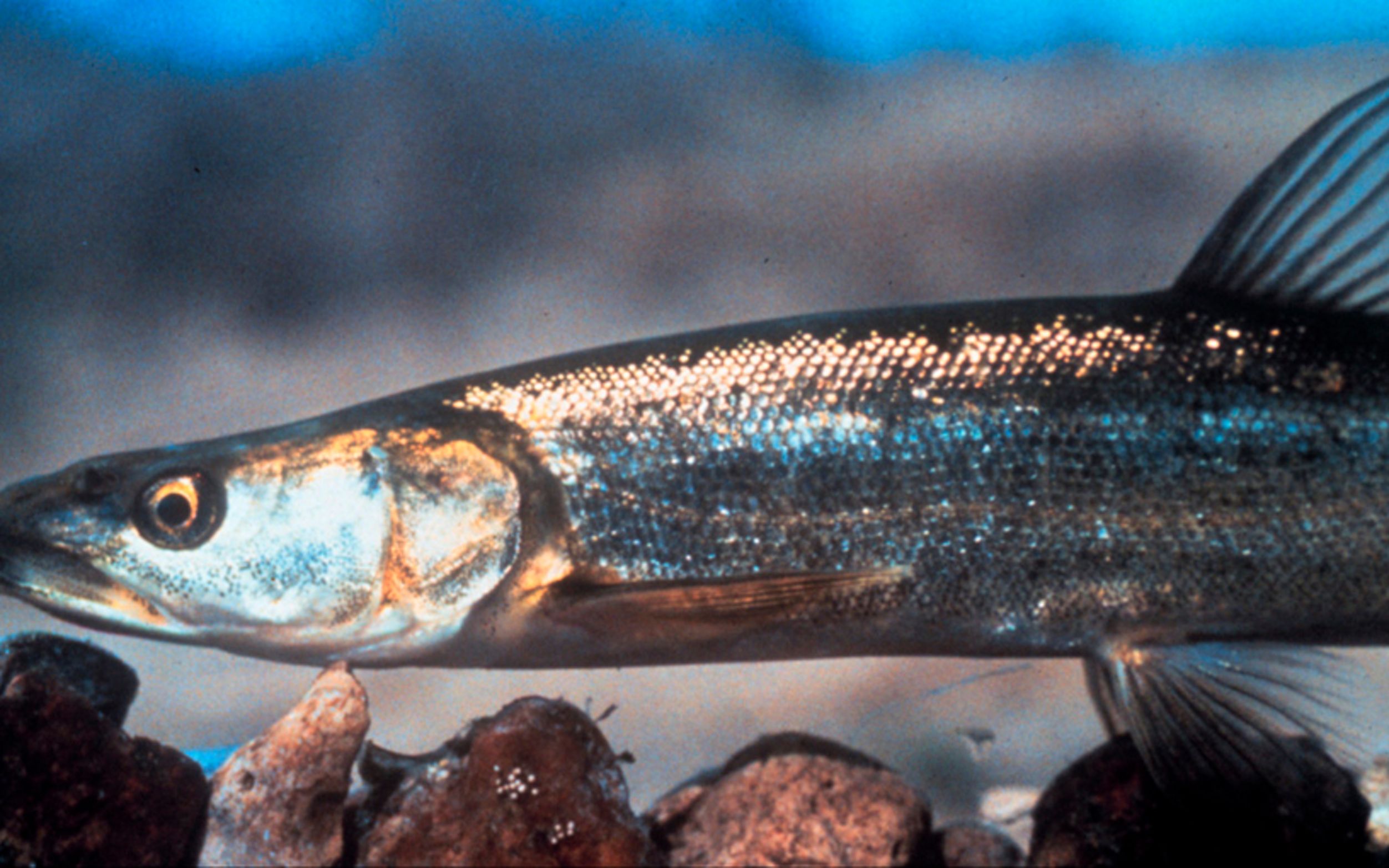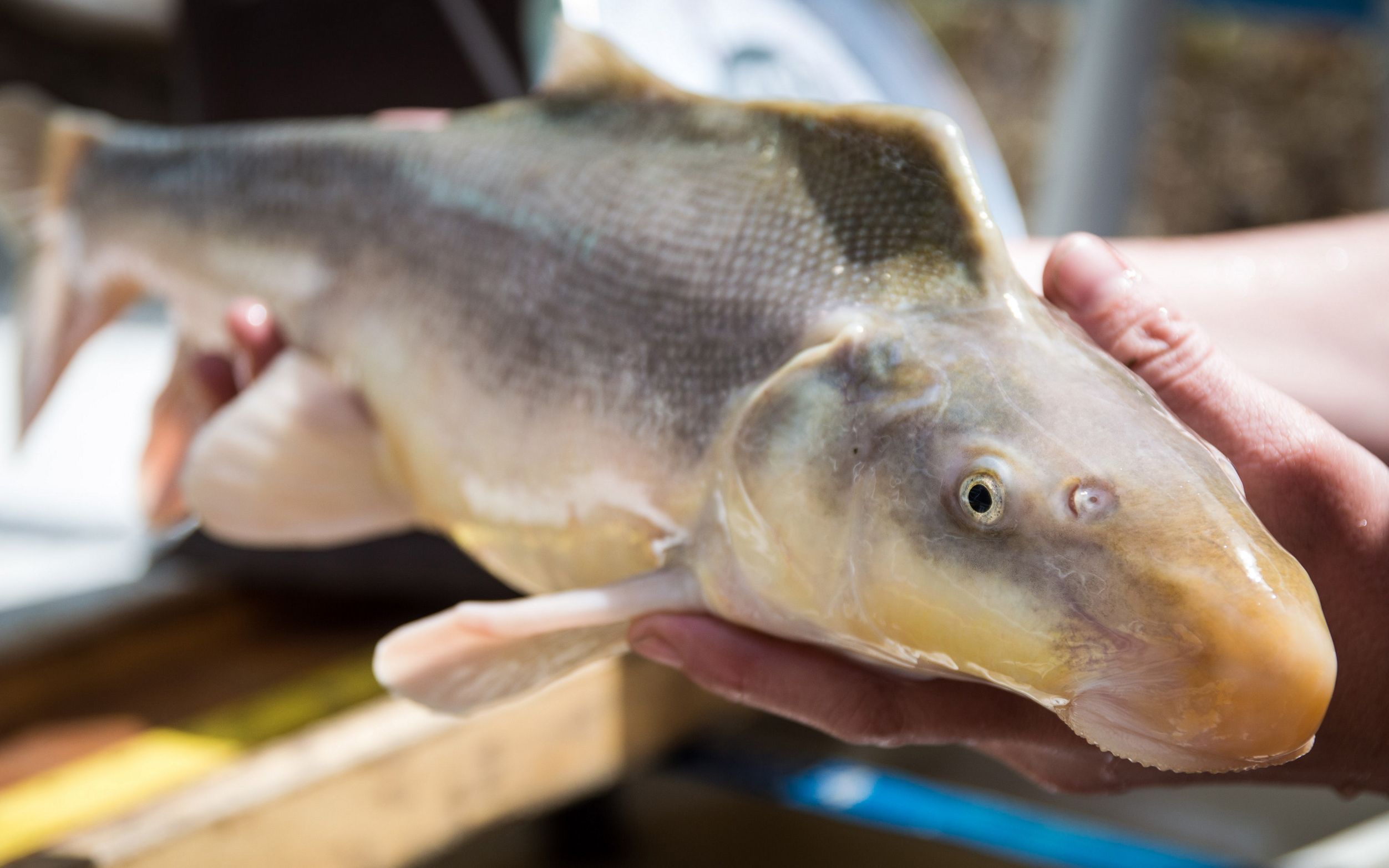The San Juan River Water Lease Agreement Partnership for Fish Habitat Improvement (Farmington, NM) was funded by the America the Beautiful Challenge. This first-of-its-kind project is a ten-year water-sharing agreement between the Jicarilla Apache Nation, the New Mexico Interstate Stream commission, and The Nature Conservancy that allows the commission to lease up to 20,000 acre-feet of water per year from the Nation to benefit the environment, endangered fish, and Colorado River Compact security.
The Jicarilla Apache Nation (Nation), the New Mexico Interstate Stream Commission (NMISC), and The Nature Conservancy (TNC) worked together to design a new innovative water-sharing agreement that allows the NMISC to lease up to 20,000-acre feet of water per year (for 10 years) from the Nation. The water will be released to the San Juan River, a tributary of the Colorado River, to benefit threatened and endangered fish and increase water security for New Mexico. This agreement demonstrates how Tribal Nations and state governments can work on a sovereign-to-sovereign basis—with support from conservation organizations—to find collaborative solutions that benefit multiple interests and users of the San Juan and Colorado rivers. With input from scientists, hydrologists, and representatives from the Endangered Fish Recovery Programs, the first water release happened over two days in June 2023. The partners received funding from the America the Beautiful Challenge 2023 to secure additional water, expand community outreach efforts, and support implementation to benefit aquatic species and increase resilience.
This first-of-its-kind project is truly a win-win-win solution that provides revenue to the Nation and advances Tribal self-determination in the management of Tribal water resources and sustaining Tribal communities, while helping the state of New Mexico maintain compact compliance and contributing to the health of the river for both people and nature. As many across the Colorado River Basin work to develop projects and solutions to address climate change and drought, the Nation, the NMISC, and TNC hope this innovative water sharing project can serve as a model for water sustainability throughout the basin. This project demonstrates that the Colorado River Basin’s Tribal Nations are important leaders and partners in crafting transformative water solutions across the West.
“In the face of climate change, we need to look for creative solutions that meet multiple needs, those of our communities and ecosystems. This project represents a brilliant model that I hope we will see replicated throughout New Mexico and the West in general.”
Hannah Riseley-White, ISC director Tweet

This project was funded by a $4 million grant from the America the Beautiful program in 2023, which was supported by the Bipartisan Infrastructure Law funds.
Since 1896, the Maybell Ditch has served as the community lifeline for the Town of Maybell, providing water and economic opportunity for irrigators — it continues to provide water to 18 agricultural producers in Northwest Colorado. The Maybell Diversion project has received enormous investments to cover the $6.8 million project cost from a variety of state and federal funding sources, including Colorado Water Conservation Board, the Bureau of Reclamation’s WaterSMART Program,the Upper Colorado River Endangered Fish Recovery Program, and the National Fish and Wildlife Foundation’s RESTORE Colorado Program. Funding from federal grants included Bipartisan Infrastructure Law funds.
The project modernized infrastructure, enabled remote operation of the headgate to the Ditch, and improved control of water delivery to agricultural lands. In the past, fish movement was constrained by low flows in the river, especially during the irrigation season (April –October). The project will help enable fish passage during low flows to allow movement through the diversion and throughout the Lower Yampa. The Maybell reach was considered a recreational use hazard due to landslides, large boulders that blocked the river, and push-up dams that hindered fish and boaters alike. The redesign connected two sections of floatable river with constructed riffles through Juniper Canyon.
SJR Water Lease Agreement in the Press

A one-of-a-kind tribal agreement will help endangered fish in the Colorado River Basin

